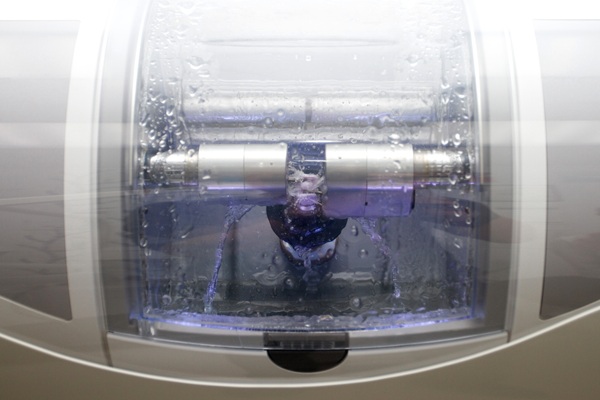What Happens If You Never Clean Your Teeth When Using Clear Aligners
 Clear aligners are an alternative to braces that use clear molded trays instead of metal brackets, wires and elastics. Clear aligners offer patients a less noticeable way to straighten their teeth; however, they also place a slightly greater burden on care and proper usage with the patient.
Clear aligners are an alternative to braces that use clear molded trays instead of metal brackets, wires and elastics. Clear aligners offer patients a less noticeable way to straighten their teeth; however, they also place a slightly greater burden on care and proper usage with the patient.
The importance of proper care and usage
If patients do not follow the outlined instructions for how long to wear aligners and how to properly care for their teeth while using aligners, serious consequences can arise. While using clear aligner trays might sound simple — you take them out and put them in — to get the best results and keep teeth healthy and free of problems, patients need to pay attention to more than that.
Why proper teeth cleaning is so important
When not wearing corrective applications like braces or aligners, patients are encouraged to brush and floss their teeth at least twice a day and after meals when possible. If a patient is using aligners, this recommendation goes up and is even more important. To keep teeth free of cavities while wearing aligners, it is important that patients try to brush and floss every time they eat. Aligners closely cover both the front and back of teeth, potentially trapping food particles and sugars between the aligners and the teeth. This creates an environment where plaque can thrive. Tooth decay and enamel breakdown will rapidly accelerate if wearers never clean their teeth while using aligners.
Tips for keeping teeth clean while using aligners
Wearers of clear aligners will have to get used to removing them each time they eat and cleaning their teeth before replacing them. Here are a few tips patients can use to keep teeth clean and healthy while wearing aligners:
- Buy a travel-size toothbrush with an integrated case. These easily fit in a purse or pocket
- Keep disposable flossers and picks in a convenient location like a purse, car, briefcase or a drawer at work
- Keep a travel toothbrush at work and brush after lunch
- Rinse the aligners with water before putting them back in
- If it is not possible to brush or floss after eating, rinse as well as possible with water
It is important for patients to realize that they do not necessarily have to use toothpaste each time they clean their teeth after eating. The most important thing is to remove any food particles and sugars that may be present on teeth after eating or drinking something besides water.
Check out what others are saying about our dental services on Yelp: Clear Aligners in Fort Worth, TX.
Conclusion
Clear aligners can be a wonderful option for correcting crooked teeth or other orthodontic issues, but just like with traditional braces, caring for teeth during the process may be a little different than usual. To avoid potential issues like dental caries, tooth decay and gum disease, it is important for patients to clean their teeth thoroughly before replacing the aligners. Cleaning after eating and drinking is particularly important and may require a little extra effort on the patient’s part: a small price to pay for a straight, healthy smile.
Request an appointment or call Riverside Dental at 817-210-4082 for an appointment in our Fort Worth office.
Recent Posts
If you have a damaged tooth due to a dental emergency, you would probably need same day crowns to restore your smile as soon as possible. Leaving a damaged tooth unprotected can make you vulnerable to infections that will affect not only your oral health, but also your general wellbeing. In this article, you will…
Is it time for a smile makeover? If you look in the mirror and do not like your teeth, there are things you can do to change it. Your general dentist can offer various treatments and procedures to revive your smile and give you the appearance you have always wanted. Your dentist can discuss your…
More dentists are using CEREC® same-day crowns as a tooth-restoration method. If you have a damaged or severely decayed tooth, this treatment could be just what you need. There are benefits and advantages to choosing this method over other options. It is useful to understand how the process works and how it is different than…


